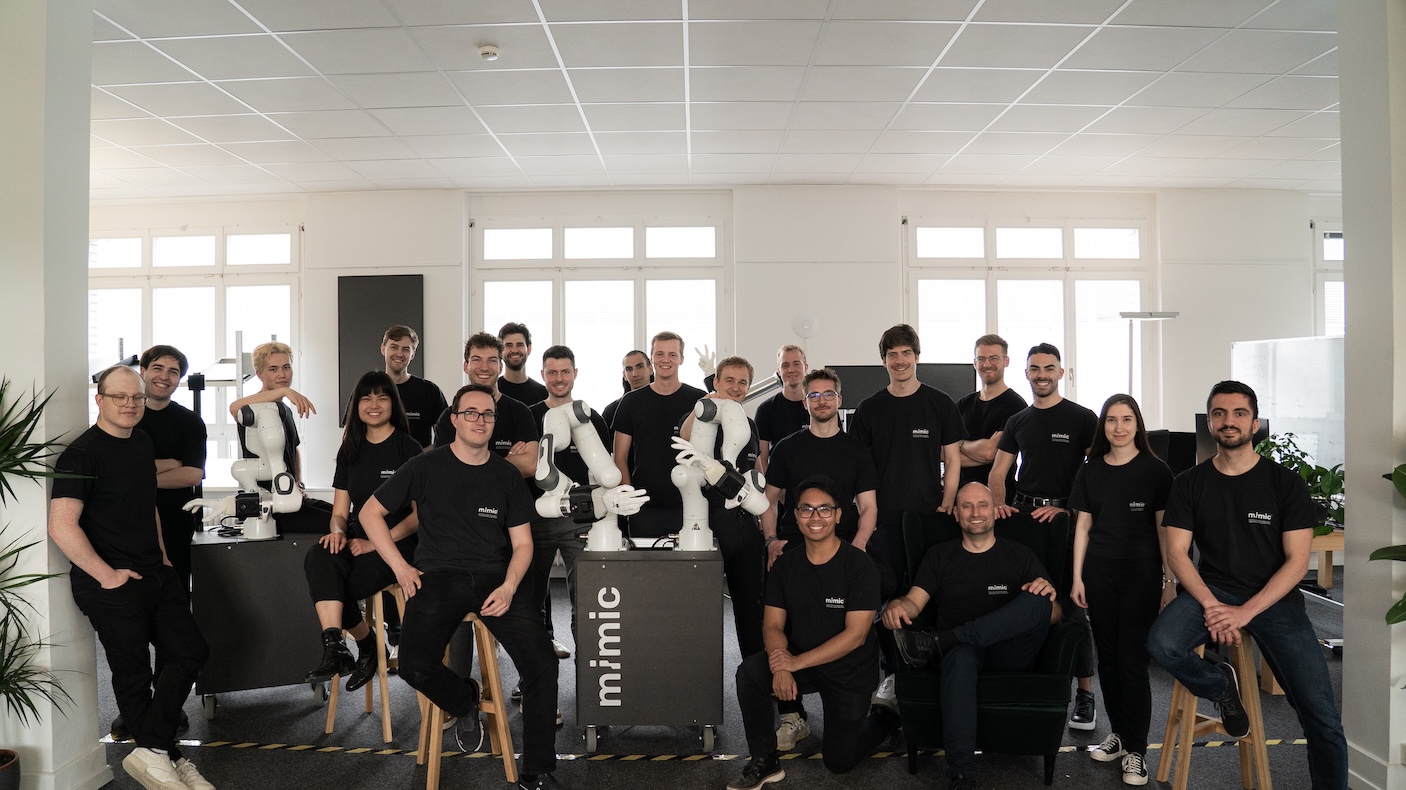Smart Solutions in Healthcare: How AI is Shaping the Future of Medicine
In recent years, artificial intelligence (AI) and data-driven tools have made waves in the healthcare sector, driving innovation and transforming patient care. As one of the least digitised industries, healthcare is finally beginning to catch up, and the impact is profound.
Speedinvest joined forces with Dealroom and took a detailed dive into the current landscape of trends, emerging technologies, and young companies on the brink of disrupting old systems.
Below, I will guide you through the key insights from our findings on how AI-powered solutions are revolutionizing healthcare, with a particular focus on the upward trend of artificial intelligence.

The Data Explosion in Healthcare
Healthcare is experiencing an unprecedented explosion of data. From clinical records and imaging scans to wearable device data and patient-reported outcomes, the amount of information flowing through healthcare systems is skyrocketing.
According to the report, global healthcare data is expected to grow from 2,300 to 10,800 exabytes between 2020 and 2025. This massive increase in data, while a potential goldmine for insights, presents a significant challenge: How do we process and analyze this overwhelming volume of data efficiently and effectively?
The current systems are not built to handle this surge. Many healthcare institutions are still relying on outdated, siloed infrastructures, which limit the potential to derive actionable insights. The struggle to keep up with the data deluge is leading to inefficiencies, slow decision-making, and missed opportunities for better patient care. What healthcare needs is not just digitalization, but a leap forward in how data is processed and utilized.
Unlocking the Power of Data with New Technology
The challenge of processing healthcare data at scale presents a unique opportunity for innovative technologies to step in. The evolution from basic digitalization to big data analytics, and now to generative AI, is reshaping how we approach healthcare across the entire value chain. Digitalization has been a vital first step, moving from paper-based records to electronic health systems. However, simply digitizing information is not enough.
The next frontier is using big data analytics to uncover patterns and correlations that were previously invisible. But even big data has its limitations in terms of speed and the volume it can handle. Enter generative AI—a powerful tool capable of not just processing massive datasets but also learning along the way to provide actionable insights in decision-making. Across diagnostics, treatment plans, operational efficiencies, and even predictive care models, AI offers a pathway to revolutionize the way healthcare professionals interact with patient data.
These technologies are transforming healthcare from simply managing data to actively leveraging it for data-driven care.

Key Challenges in Adoption, Deployment, and Distribution
While the technology is ready, the biggest hurdles for young companies lie in adoption, deployment, and distribution. Healthcare systems, like the NHS, present complex regulatory environments and fragmented structures, making it difficult for startups to scale their solutions.
The real challenge is getting these technologies into clinical environments where they can make a difference. Navigating regulations, securing approvals, and ensuring that AI tools can seamlessly integrate into existing workflows is critical. Stronger partnerships between healthcare providers, startups, and regulators are essential to speed up this process and enable the deployment of new technologies at scale.
AI: Transforming Healthcare Across Verticals
AI is transforming healthcare across a variety of verticals, providing solutions that improve both clinical and operational workflows, including:
- Front and Back Office: AI tools are streamlining administrative processes such as scheduling, billing, and patient communication, reducing administrative burden and enhancing operational efficiency for healthcare providers.
- Clinical Decision Support: AI-driven analytics assist clinicians in making more accurate, data-backed decisions. From diagnostics to treatment recommendations, AI enhances the quality of care by reducing errors and improving precision.
- Training and Development: AI-powered platforms are revolutionizing medical education by providing real-time training simulations and personalized learning tools that help healthcare professionals acquire new skills and stay updated on the latest medical advancements.
- Remote Patient Care: AI-enabled remote monitoring systems and virtual wards allow for continuous patient care outside of traditional clinical settings. These tools help track patient health, predict issues before they arise, and offer timely interventions, making long-term care more effective.
These AI applications are not only improving efficiency but also allowing healthcare professionals to re-focus on patient interaction, ensuring a more human-centric approach to healthcare.

Outlook: Challenges and Opportunities for AI in Healthcare
However, while AI is making inroads, adoption is still relatively low. Many healthcare providers are hesitant to fully embrace these technologies due to concerns over reliability, integration, and costs. Additionally, the report highlights that incentives for valid business models are often misaligned, creating further barriers for startups looking to scale. The exit environment for healthtech startups remains challenging, with limited opportunities for acquisitions and a tough regulatory landscape to navigate.
To overcome these hurdles, there must be a stronger alignment between regulatory bodies, scientific institutions, and entrepreneurial efforts. By working together, these stakeholders can help ensure that novel technologies have the space and capital they need to flourish. The key to unlocking the full potential of AI in healthcare lies in this collaboration, which can accelerate innovation, improve adoption, and create a more favorable environment for exits.
We identified more than 600 young companies pioneering these complex developments throughout different sectors. Here are just a few.

Conclusion: A new era in patient care powered by AI
AI and smart technologies are set to redefine the healthcare landscape. While challenges remain in adoption, regulatory alignment, and distribution, the opportunities for transformation are immense. As more capital and resources are directed toward this field, we can expect to see a growing wave of innovative startups disrupting the status quo. The future of healthcare lies in the intersection of technology, data, and human care, and by working together, regulatory bodies, innovators, and investors can help bring about a new era in patient care.
Want more updates on our portfolio? Sign up for our monthly newsletter and follow us on LinkedIn.













.svg)
